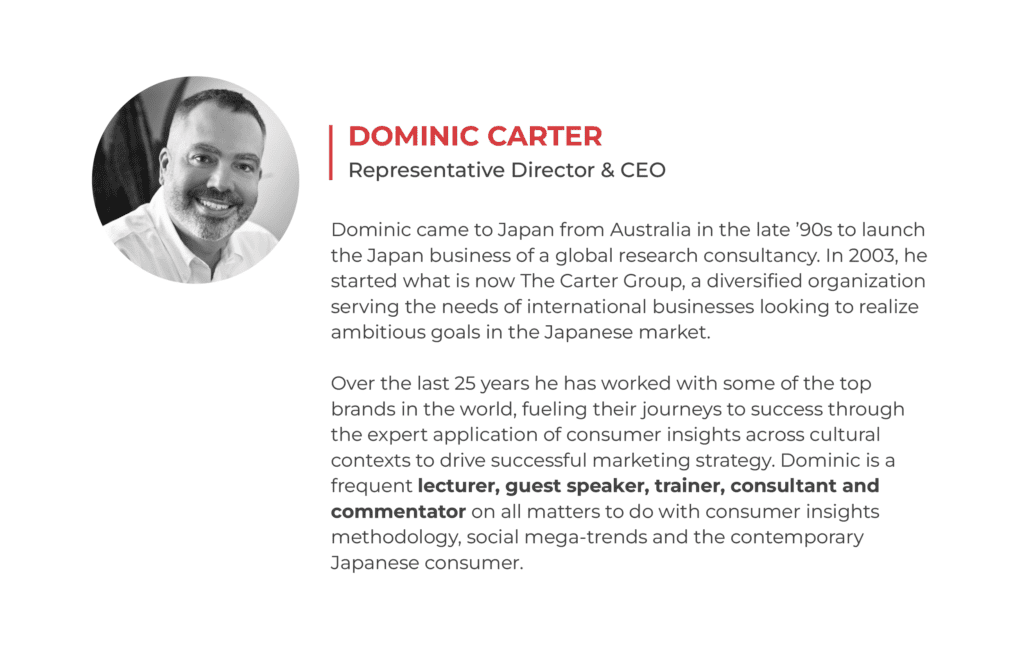Back in the last century when I was studying marketing at the University of New South Wales in Australia I was fortunate enough to be properly introduced to the concept of market research. In fact, we were required to complete a full introductory course in the topic as part of our degree. So there really never was a time that I didn’t consider the practice of the various types of research to be integral to the process of business planning. Nonetheless, when I look back I remember at the time feeling a little skeptical about the ‘fine print’. I wondered how what sounded good in theory would be applied in practice, in particular how much science can really be applied to the art of marketing? I think it’s a concern that many marketers and businesspeople share. So, in this article I’m going to outline the main reasons why you should skip doing any market research. These are all excellent reasons but, as you might expect, I’d also like to present the counterargument. Let’s see how I do!
Formal Market Research is Expensive
The most basic desk research exercise we carry out at CarterJMRN usually starts at around ten thousand dollars. Focus group projects typically start at around thirty thousand, and we also carry out large scale quantitative research projects that cost north of a million dollars. So, of course, carrying out research will be something that not every business can afford. That’s especially true for start-ups. I’m not going to argue it’s cheap, but it is worth bearing in mind that the budget for market research is logically driven by the importance of the decision and the size of the investment that the project is designed to inform. If you are planning to spend five million dollars on media for an advertising campaign, then is spending fifty thousand dollars on ensuring that your creative hits the mark a lot or a little?
But even for start-ups or small business, there are informal methods of research that can be done without engaging an agency. Every year JMEC, a business plan training program for which I have been lecturing for years, requires their participants to gather information and carry out research in their target market to support their business plan writing – with no budget at all. I’m always happy to chat with people who would like to explore how to pull that off.
Market Research Slows Things Down
Unfortunately, it is true that market research slows down the process of taking action in the market. Even quite a fast turnaround on an average project can take well over a month but, especially if they are done face to face, often projects take a lot longer than that. It is certainly true there are many inefficiencies in the process of market research that, frankly, waste time. Some of them can be attributed to rigid agency processes, and some are due to slow communication within client organisations or time-consuming procurement practices. Companies such as Zappi are leading the way in providing high quality customer surveys faster.
However, let’s not forget there is a learning process that comes with much market research (even over the course of the project) – and that can take time. Longer timelines allow time for iterative thinking which can make all the difference in ending up with research findings that address the real business need as it comes to be understood. It is quite common for the assumptions and objectives of a research project to develop over the course of the project. This is simply the result of giving a business problem proper time to be addressed – sometimes there’s no substitute for that.
Market Research is Full of Process and Involves Overly Rigid Methodologies
Market research is highly process-driven and often relies on tried and tested methodologies that become almost templated. These can be done to a fault because nobody on the client or agency side wants to be accused of having made a ‘mistake’. The danger of worshipping processes and methodologies is that they hamper agility and the ultimate ability to discover new things. But at the same time methodologies must be robust or nobody will trust the findings. If new methodologies are utilized, then people may not know how to interpret the findings or put them into context. No responsible board is going to agree to major investments or changes in strategy based on research that doesn’t pass the ‘smell’ test.
Nevertheless, it’s very true that sometimes the measurement criteria that clients use are too limiting to allow them to create a breakthrough with their brand. Advertising testing is a classic example where the testing methodology employed can tend to bias the type of creative that gets produced. I remember on multiple cases being told by advertising account people that they knew how to ‘beat’ the test. I don’t think this is really true, but I suspect their attempts to do so did not help the overall quality of their work. So while I’m a great believer in measurement, it is a constant challenge not to fall back on formulas or get stuck in a ‘box’.
I also hear from time to time from people who feel, no matter how much they analyze and interpret, they can learn nothing new about their problem because their surveys tell them the same things every time. But most of the time these people are merely repeating the same approaches (usually surveys). I always advise people who are really stuck to break the rules of what they think research should be. Measurement can wait. Having the confidence to do some free-form exploratory research paired with brainstorming is usually critical to making a breakthrough.
You May Think You Know the Answer Already
I can state from bitter experience that it’s impossible to convince someone to do research who is very confident they already know what their buyer is thinking. Sometimes they do. In fact, the best marketers I’ve worked with are brilliant in their ability to put themselves in the shoes of the buyer. However it is quite common for us when we do internal stakeholder work to hear things about a company’s customers that turn out to be different than what we encounter in the field.
Even if the client’s model of their consumer’s world was accurate five years ago, it may well not be the case now. The current corona crisis is a classic example where in category after category there have been a set of adjustments that consumers have made in their priorities and needs. I can think of at least one market segmentation that we have done in the last two years that is now completely inadequate to fit the ‘new normal’. There’s no better way to understand this than to engage people in direct conversation. Long live qualitative research!
Research Can Contradict Some Powerful People
Trust me, I’ve been put in the position many times of having to deliver findings that go against the grain. Honestly, it’s scary to get up and speak in front of a group that does not want to accept the findings of their project. There is an enormous amount of subtle (and sometimes unsubtle) pressure on researchers to ‘toe the line’. Unfortunately, the old adage of research being used in the same way a drunk uses a lamppost is sometimes apt – ‘support rather than enlightenment’.
However, I’ve always felt that it’s when market research goes against the expected results that it really proves its value. These are the times when progress is made. But it can be traumatic a leader and a team to learn their strategy isn’t connecting with those for whom it’s intended to act upon. It’s tough, but if you’ve already decided on a course of action, then it’s not the role of the researcher to endorse that.
Research Can Take You ‘Off Track’
Single mindedness is a wonderful thing. It’s one of the keys to success in business and life. But I have to warn that there is a significant chance of market research urging or even compelling you to think differently about your problem or opportunity. Sometimes the definition of your business issue is not one that the buyer shares. And in different contexts, I can remember many cases of great new product solutions in search of a consumer problem. It’s natural to fear losing control of the project or the strategic narrative by having a third party report the thoughts and feelings of your market. After all, doesn’t the researcher have a bias too?
Oh yes! Because no matter how professionally they approach a task, researchers are human and as such are subject to unconscious bias in the way they present and interpret findings. This is why it’s absolutely essential for clients to be highly involved in their projects. I strongly feel that by the time research findings are presented they should be of no surprise to anyone on the core client team. I also feel it is of great benefit to build the findings and their implications in a collaboration with the client. Great clients are those who encourage the raising of hypotheses and sometimes even doubts. Genuinely useful insights are those that emerge collaboratively between the consumer, the researcher and the client.
To conclude, there are many great reasons why market research doesn’t get done, but my best argument for countering them is an empirical one. In the more than 25 years I’ve worked in the industry, my team and I have had the opportunity to work with a truly wide range of clients. This has given us a clear perspective as to why some clients make it and some struggle. In that time, it’s been very rare for me to see a situation where a client was not successful when they carried out market research and backed it up with taking actions the research indicated. Being successful requires picking up on the signals the consumer gives us, using these to shape ideas, and then objectively dealing with the facts as they are – not how we would like them to be. Being human and all, it’s a tall order but the rewards are worth the trouble.

